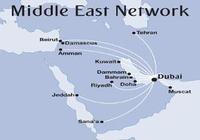Emirates announces 2007 Middle East expansion plan
 Ahead of the start of the New Year, Emirates, one of the world’s fastest growing airlines, has unveiled plans to further expand its Middle East network.
Ahead of the start of the New Year, Emirates, one of the world’s fastest growing airlines, has unveiled plans to further expand its Middle East network.The Dubai-based carrier is strengthening its Kuwait and Damascus operations by adding two flights each per week, and enhancing its Beirut service to a double daily. The scheduled enhancements will boost available capacity in the region by over six per cent and bring Emirates’ Middle East presence to a robust 155 weekly flights to 12 gateways.
Starting 25th March 2007, Emirates will introduce an additional flight to Kuwait every Sunday and Monday using the modern Airbus A330-200 aircraft in a three-class configuration of 12 First, 42 Business and 183 Economy Class seats.
The extra flights, a result of Kuwait’s recently announced Open Sky Policy, will enable Emirates to offer daily early morning departures, connecting Kuwait’s businessmen to key European gateways and its sun-seeking leisure travellers to the Far East within three hours. Post frequency increases, Emirates will serve the oil-rich nation with 25 flights per week.
Increasing demand for air travel has prompted Emirates to add an extra flight every Tuesday and Wednesday to the Syrian capital, Damascus, from 1st May. The extra flights will introduce over 500 passenger seats and more than 30 tonnes of cargo capacity per week per direction, and offer travellers two departure options - four morning flights and five afternoon flights.
For the first time, Emirates passengers will have a choice of two flights per day to Beirut, starting 25th March. The additional Monday flight will be operated on a three-class Airbus A330-200 offering industry-leading comforts, ergonomically designed seats, and personal entertainment systems in all classes.
Hamad Obaidalla, Senior Vice President Commercial Operations, Gulf, Middle East & Iran said: “The Middle East, emboldened by a tourism boom and rapid economic development, is posting one of the strongest growth rates in air travel. According to Airports Council International (ACI), passenger traffic at Middle East airports has increased 10.9 percent, outstripping all other regions; while cargo traffic growth stands at 5.4 percent, second only to growth in Asia Pacific.”
He added: “Statistics from IATA mirror a similar scenario with international air traffic in the Middle East expanding at an average annual growth of 6.9 percent until 2010 – ahead of all other geographic regions.”
“Emirates is steadily strengthening its operation to cater to the region’s robust air traffic growth. With over 150 weekly flights to the region, Emirates remains the strongest carrier in the Middle East market.”
Emirates expansion campaign in the region has also included the launch of ‘Travel Shops’ in Damascus and Riyadh.

